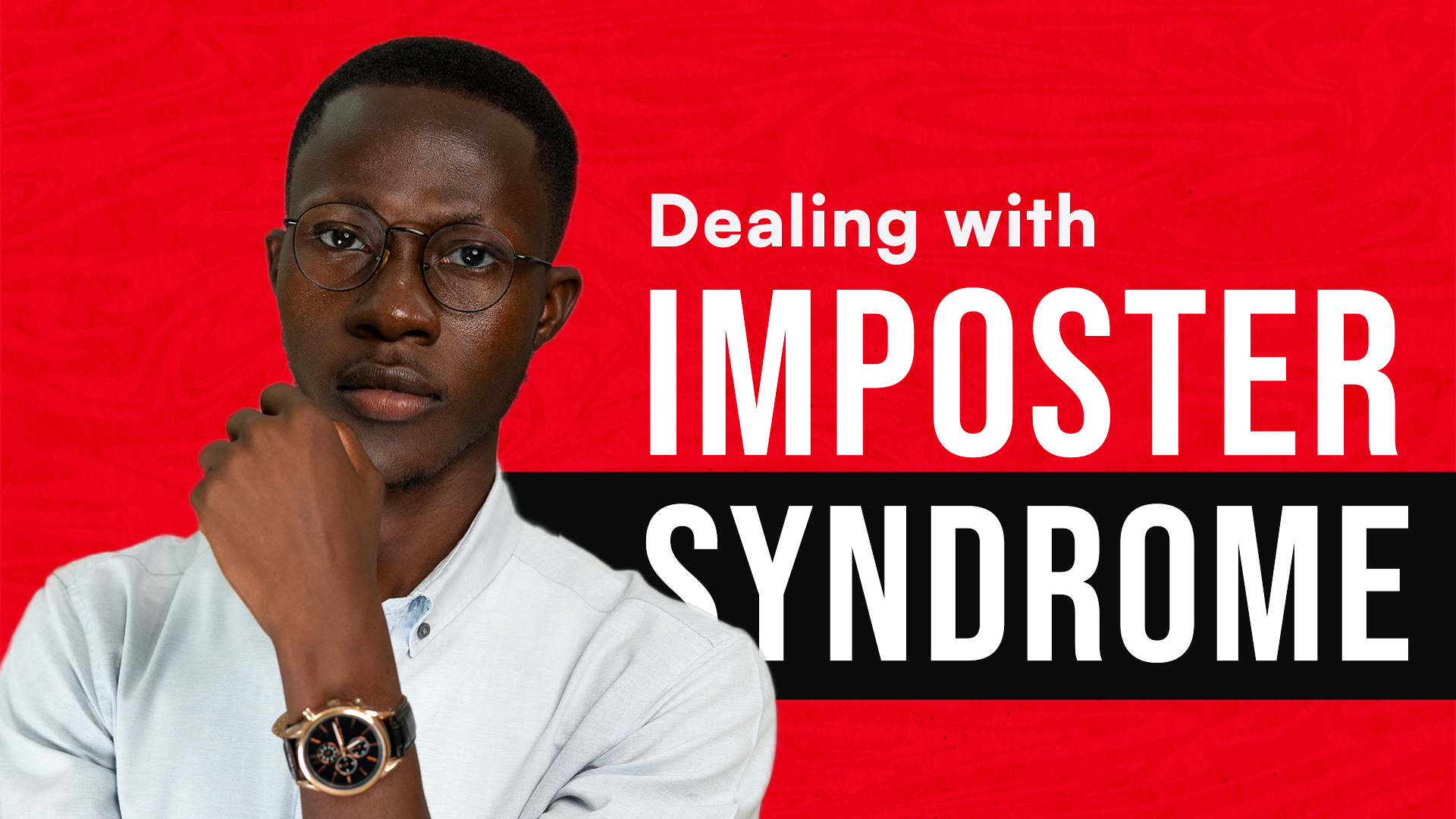What is Imposter Syndrome and how to deal with it.
Imposter syndrome is a very common phenomena that affects many professionals in their work, it can make you pass opportunities and it can make you loose faith. Do you know what it is?

At many points in time you are going to be a beginner at something. Not knowing how to do it well, wondering if you are ready for that endeavor and feeling like no I should say no and run away from it. Sometimes you are going to be doing the same thing you have been doing for years but on a larger scale and some questioning thoughts may set in as to whether you are really qualified to be on that stage.
I am here to tell you that you belong exactly there.
That feeling, like you don’t belong, like you are a fraud, wondering whether you do belong there is referred to as **imposter syndrome.**You have to be aware of it, you have to know about it. Because it hard to treat a disease without knowing what you are sick of.
How common is it?
Impostor syndrome is actually fairly common: Researchers have found that up to 82% of people have suffered from it at one point or another. But the fact that it's common doesn't make it any less damaging to a person's confidence and career growth. If anything, more people are unable to show up fully in their work than ever before which is concerning for several reasons.
For me, I want you to write, I want you to start your YouTube channel, I want you to learn that skill. I want you to put yourself out there and when you do, you will be a beginner and you will not feel t is for you but I am here to say it is for you.
This is what I want you to do, don’t worry about how you sound, don’t worry about what other people will think, become actually no one cares. Don’t even start planning, don’t because that is how you will not never start.
Take a little time and tell yourself you belong here.
Dealing with imposter syndrome
1. Know you are not alone.
When you have impostor syndrome, some of the most important encouragement comes from realizing how many hugely successful people, both male and female, have built amazing careers even while regularly coping with it. What many people don't know is that many successful people that we look up to also have been faced with imposter syndrome countless times. What sets them apart is that they learnt how to deal with it.
Serina Williams, our legendary tennis player, had this to say:
What am I doing here? I don't belong. I've just been lucky, - Serena Williams.
Howard Schultz of Starbucks also had something to say as well.


2. Let go of your inner perfectionist.
Perfectionism, while helpful in certain contexts, can be a major roadblock for productivity. Turns out it can be a major roadblock for overcoming impostor syndrome, too.
Many people who suffer from impostor syndrome are high achievers; people who set extremely high standards for themselves and are committed to doing their best and being the best.
But perfectionism only feeds into your impostor syndrome. When you feel like a fraud, it's usually because you're comparing yourself to some perfect outcome that's either impossible or unrealistic.
Not only can no one do everything perfectly, but holding yourself to that standard can actually be super counterproductive. At some point, you need to take a step back and ask yourself: When is good enough good enough?
Hey, you are not going to go from good to expert in one day.
3. Talk about it with a mentor a supportive friend..
You are never alone and should not be alone. Find a mentor, or a supportive friend and talk to them about the negative thoughts that keep popping up in mind and also about the opportunity at hand or endeavor you plan on starting. Many mentors are very open to telling you about some of the challenges that have had in their careers and how they dealt with it and more often that will go along way to be of help to you. With regards to friends, you need a supportive friend: a support friend will be of help and build you up and some bad friends will only pull you down and condemn your feelings.
When I was first faced with imposter syndrome two years back, I had a friend Albert Owusu who I spoke to when I was at a graduation ceremony where I was providing professional photography services. I was comparing myself immediately with the other photographers and I was on the low side; I didn't have enough equipment compared to me. Speaking with Albert, he told me how good my work was and the encouragement I got from Albert just helped me get my A game out there and every time I look back at the photos I took from that graduation, I get even more grateful to him for the support.
Having a supportive friend or mentor will go a long way to impact you and help you fight imposter syndrome.
4. Say YES to opportunities.
I know you can say yes to everything, I mean that’s suicide. But at the even if an opportunity, ask yourself, is it because you cannot do it because because there is too much work on your plate if because you are not sure you can do it? It is very important to be truthful to yourself.
If after assessing yourself, the reason you are considering saying NO is because you are not sure if you can do it, not sure if you are ready to take on that opportunity, then imposter syndrome might be at the bottom of that.
Taking in new challenge will almost always build you and help you grow.
Remember, it doesn’t go away, it doesn’t. But when it does pop up, you must identify it and then do the needful to push it away.
I will catch you in the next one.
You can always check out my YouTube video for more tips on growing your personal brand and building yourself up.
← Back
